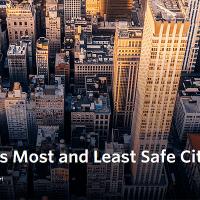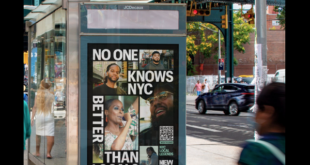[ad_1]
NEW YORK, N.Y. – Numerous elements impact personal safety, and yet many rankings rely predominantly on crime statistics to evaluate a city’s level of safety. RewardExpert – a free service that helps users take full advantage of credit card and travel rewards – released a ranking of 2017’s Most and Least Safe Cities which takes a more comprehensive look at what it means to be safe.
“Threats to our safety come in many shapes and forms,” says RewardExpert CEO and co-founder Roman Shteyn. “Violent crime statistics are only one factor that determine how safe a city is for its residents and visitors. After all, an American citizen is more likely to be killed in a motor vehicle accident than to be a victim of homicide. Likewise, natural disasters and health hazards are greater safety risks than theft and assault. This ranking is founded on a more robust definition of safety than what crime statistics alone can tell us.”
The report analyzes U.S. cities and towns with populations greater than 3,000 people based on 32 safety indicators divided into eight major categories: crime, mortality rates, firearms, motor vehicle crash risks, health risks and health care, economic and financial risks, man-made environmental hazards, and natural disasters.
The ranking breaks down the most and least safe big and small cities across America.
The top five safest big cities are:
- Plano, Texas
- Irvine, California
- New York, New York
- Chula Vista, California
- San Jose, California
The five most dangerous big cities are:
- Tulsa, Oklahoma
- St. Louis, Missouri
- Cincinnati, Ohio
- Bakersfield, California
- Toledo, Ohio
“Nationally, the rate of crime has fallen. In fact, many big cities that are often perceived as danger zones have become statistically safer,” says Shteyn. “Take into consideration that residents in metropolitan areas have better access to high quality health care and are often less prone to financial and economic risks; these factors are more likely to affect your family’s well-being than crime. With a more comprehensive look at the numerous threats we face, we see that high population density is not necessarily synonymous with increased safety risks.”
The 32 safety data indicators used in the ranking were collected from a combination of government and public data sources. RewardExpert then calculated weighted percentile rankings for each set of indicators to produce a final composite risk score.
[ad_2]You can read more of the news on source
 Travelsmart
Travelsmart



